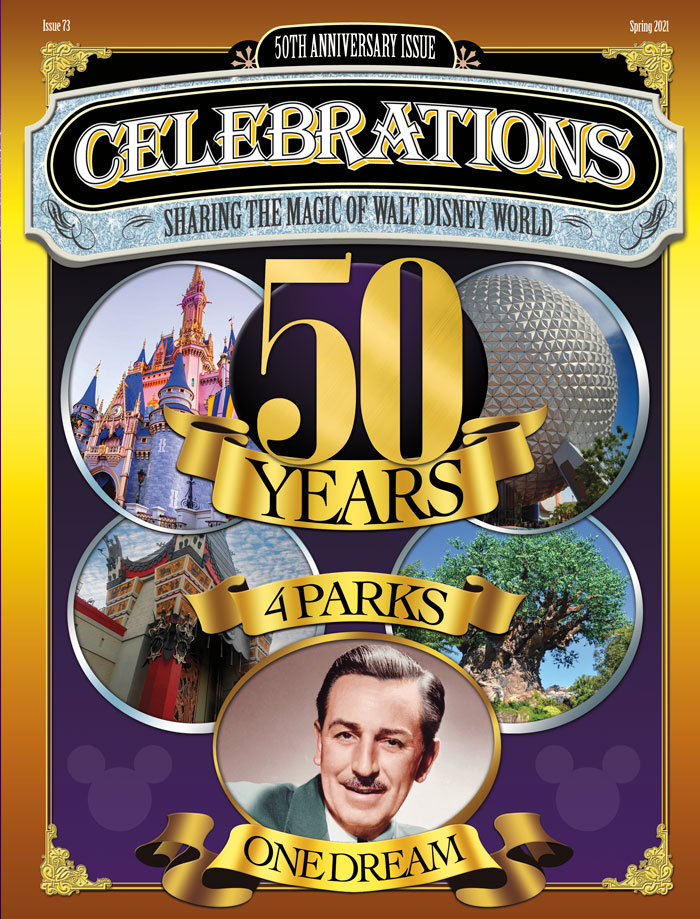5 Pieces of Must-See Art at Walt Disney World
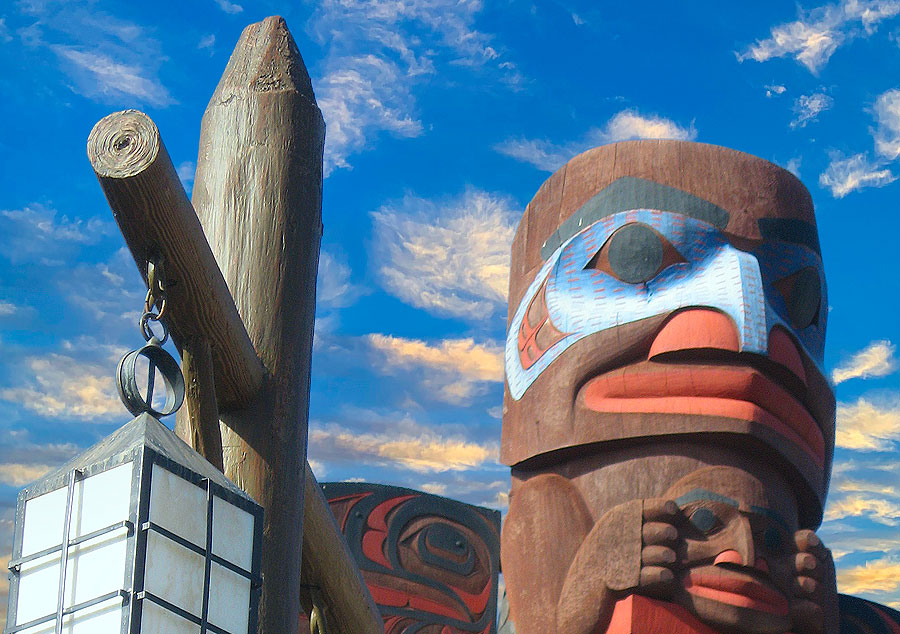
The Epcot International Festival of the Arts continues at Walt Disney World, running until February 20. It’s a brilliant celebration of creativity and the boundless possibilities of the human imagination.
But Festival of the Arts is far from the only way to experience the brilliant work of artists in the magical world of Disney, This week, we’ll take a look at five works of art that you need to experience when visiting Walt Disney World.
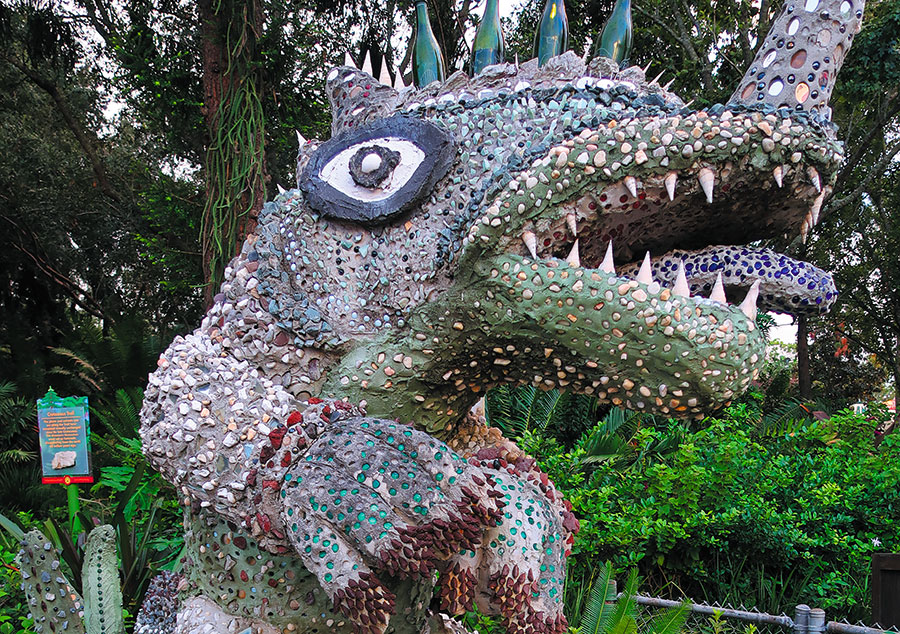
Party O’Saurus (DinoLand USA in Animal Kingdom)
In a 2020, Imagineering legend Joe Rohde provided a bit of background behind this remarkable piece of folk art located in Animal Kingdom. He recalled, “When we were building Disney’s Animal Kingdom, the House of Blues was being built at what was then an expansion of Downtown Disney. They had employed a prominent folk artist, Gregory Warmack, who went by Mr. Imagination. We enlisted him to create an actual work of American folk art in front of Chester and Hester’s Dinosaur Treasures.”
Born in Maywood, Illinois in 1948, Warmack had no formal training, but began creating works of art as a child. In the 1970s, he was the victim of a mugging and shooting that left him in a coma. Upon awakening, he brought a new sense of spirituality and purpose to his work.
He became best known for his works with bottle caps. Gallery owner Carl Hammer recalled, “He saw life in any kind of found object. Walking down an alley, a piece of scrap metal would literally call out to him.”
In addition to his work at Walt Disney World, Warmack’s art has been displayed in places such as the Smithsonian American Art Museum, the Halle Sainte Pierre in Paris, and Intuit: The Center for Intuitive and Outsider Art in Chicago.
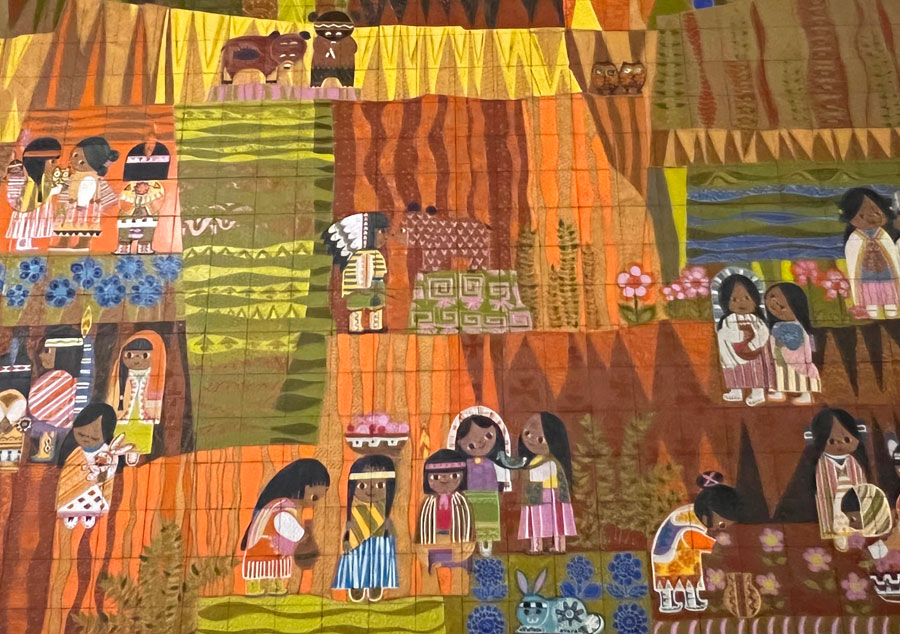
The Grand Canyon Concourse Mural (Disney’s Contemporary Resort)
Mary Blair may be the first name that springs to mind when people think of Disney art, and with good reason. She was Walt Disney’s favorite artist. As Imagineer and Disney legend Rolly Crump once recalled, “The way she painted—in a lot of ways she was still a little girl. Walt was like that… You could see he could relate to children—she was the same way.”
You can find her fingerprints on attractions like “it’s a small world” as well as in films such as The Three Caballeros, Saludos Amigos, Alice in Wonderland, and Peter Pan.
One of the most remarkable contributions Blair made to Walt Disney World was the Grand Canyon Concourse Mural, which can be seen at Disney’s Contemporary Resort. During the construction and design of the hotel, it became clear that it would need something to soften the modern style of the building’s architecture. As noted in Design Observer, “Faced with the airplane hangar ambience, Blair addressed the problem with a nine-story ceramic interpretation of the Grand Canyon from the canyon floor to the rim.”
The result is a stunning work of art that some suggest may be, “the most viewed modernist mural in the world.”
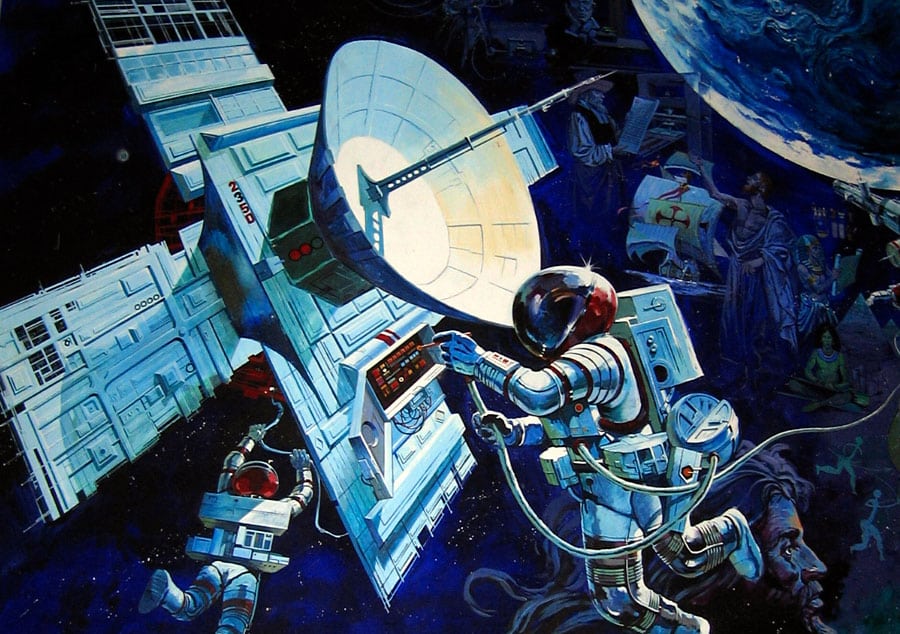
The Spaceship Earth Mural (Epcot)
To take a trip on Spaceship Earth is to celebrate the grand human story as it has progressed through the ages. It’s an exercise in unbridled optimism for the possibilities of tomorrow, rooted in the accomplishments of yesterday. But the experience begins before you even board the attraction.
As you enter the monumental geodesic sphere, you’ll come face to face with a stunning mural that depicts communication from humanity’s earliest days until the present.
The piece was created by Italian artist Claudio Mazzoli, who reflected on the profound task of creating the mural stating, “To begin, I have to ask, ‘where did man come from?’ Where are we going? What are we looking for? And I think the answer is power. The power of the universe. The good of the universe. It is the life, the electricity this is where we come from and I think, where we want to go. In this painting I tried to make people understand how man communicates, the meaning of communication, how important and powerful communication is.”
While painting the piece, Mazzoli was lovingly teased by other Disney creatives. Former Imagineer Peggie Ferris recalled, “I remember Claudio up on a scaffold at Tujunga [the Walt Disney Imagineering facility in North Hollywood] painting it, and we teased him about following in the tradition of Italian Renaissance masters.”
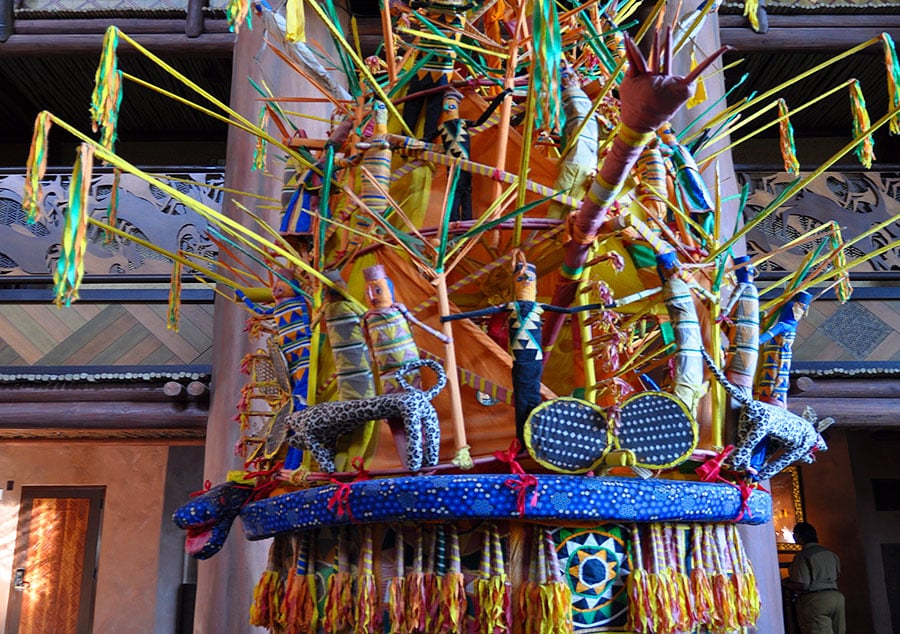
Igbo Ijele Mask (Disney’s Animal Kingdom Lodge)
The Ijele Masquerade is a tradition of the Igbo people of Nigeria, and has been deemed an “intangible cultural element in need of urgent safeguarding” by UNESCO. A description in the UNESCO archives states, “In many communities in the state of Anambra in south-eastern Nigeria, celebrations, burial ceremonies and other special occasions during the dry season to evoke fertility and a bountiful harvest feature the performance of the Ijele masquerade.” The article also notes that the masks usually take one hundred men as many as six months to create.
One such mask can be seen in the lobby of Animal Kingdom Lodge. Towering sixteen feet high and eight feet wide, it is a stunning creation, which according to Disney is, “one of the first of its kind to leave Nigeria.”
Providing context for the mask’s usage, Leslie Tate Boles, curator at Walt Disney Imagineering states, “The person wearing the mask, who goes through physical and spiritual preparation for the event, goes under the framework, aided by followers to steady the mask. The Ijele orchestra, which consists of a line of drummers, flutists, dancers and singers, prepares the crowd. The mask is preceded by a male dancer and followed by the orchestra. It begins its movement slowly, but during the 15-minute ceremonial dance, the Ijele is always majestic, enforcing his image as the king of masks and a figure of supreme mystical authority. The Ijele moves with agility as its large body goes forward, backward, side to side and in semicircular turns from left to right, going back into an enclosure.”

Totem Poles (Canada Pavilion, Epcot)
In 1998, Disney reached out to the mayor of a Tsimshian Village called Metlakatla on Annette Island in Alaska. They were looking for an artist to contribute totem poles to the Canada Pavilion in Epcot. He suggested David Boxley, who began studying Tsimshian carving and arts in 1979 and made their creation his full time profession in 1986.
Boxley carved a totem pole for the pavilion’s trading post in the 1990s, and carved two new totem poles for the pavilion that were dedicated in 2017. Disney Parks official blog shared the stories depicted in the 2017 totem poles stating, “The Eagle Totem Pole tells one of Boxley’s favorite cultural tales, in which a boy finds an eagle caught in a net on a beach and frees it. Years later, when hunger strikes the boy’s tribe, he walks on the same beach, only to find the eagle there waiting for him with food – paying him back for his kindness years ago. The bottom of this totem pole also tells the story of how a family of beaver taught a human family the importance of treating all creatures – human and animal – with respect. The Whale Totem Pole depicts the tale of the first potlatch, a ceremonial feast celebrated by the Nagunaks and creatures of the undersea world.”
Enjoy the magic of Disney all year ’round with Celebrations Magazine!
